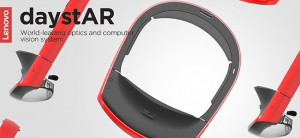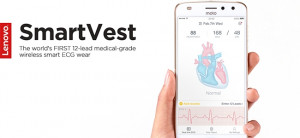Lenovo knows it needs to constantly innovate to stay ahead.
Speaking at the Lenovo MEA Innovation Summit, in Cape Town this week, Lenovo MEA GM and VP Marc Godin said Lenovo believes the world is entering the fourth industrial revolution.
This will be fuelled by artificial intelligence (AI), which will be coupled with almost-infinite computing power through the cloud and be powered by super-fast networks.
He noted this will change the way people live and interact with the world.
Lenovo wants to make sure it is experimenting in this new space already, before its customers and users get there.
Dilip Bhatia, VP of global marketing, user and customer experience within the Lenovo PC and smart device business group, said: "There are just so many enabling technologies out there. Artificial intelligence and augmented reality (AR) are big ones, but right now it's still in the early phase and it will take a couple of years to reach mainstream."
Lenovo's company culture is entrepreneurial and teams are working on 'futuristic' products all the time, he noted, although they are not sure which ones will take off and which won't.
For example, Bhatia believes AR will be more useful in everyday application than virtual reality (VR), but the company is working on products in both spaces.
He said once a product has passed the concept phase, it will continue to be improved based on customer feedback.
Lenovo released a series of concept products at Tech World in Shanghai earlier this year.

The first is CAVA, Lenovo's version of a virtual personal assistant.
"It uses deep learning-based face recognition systems and natural language understanding technologies to manage calendar events and remind users based on their habits," Lenovo said in a statement.
"CAVA can also understand the meaning of a message and based on that make recommendations to the user's calendar. For example, it can suggest when to leave for an appointment by analysing weather and traffic data."
It is currently a research prototype only for the China market.

The daystAR is Lenovo's interpretation of a VR headset.
The company describes it as: "An optical display with an independent vision processing unit and free-formed surface lenses with a 40-degree field of view.
"Using the Lenovo AR platform, developers can use daystAR to create applications across a variety of industries. With services like cloud object recognition, remote assistance, multiplayer interaction and 3D content manager, you can scan, upload and edit 3D content through the platform."

Lenovo is also looking at creating smart clothing that tracks the wearer's cardio health.
"The 12-lead medical-grade smart clothing garment uses 10 textile sensors built into the ECG clothing to monitor cardiac activity," it says.
"It records ECG signals in real-time 24 hours a day and identifies abnormalities, such as tachycardia or atrial fibrillation. Athletes can use it to get accurate real-time heart rate and heart rate variability analysis. The garment sends an alert when your cardiac activity becomes unsafe."
The company has also created a smart speaker that recognises sounds and objects, and delivers AR experiences, and an AI-enabled customer service platform that provides personalised support.
Share